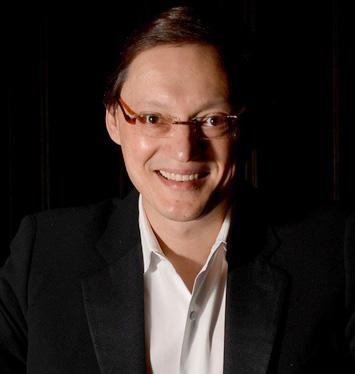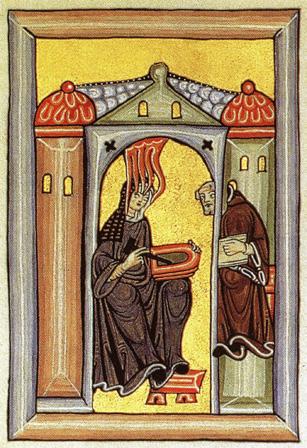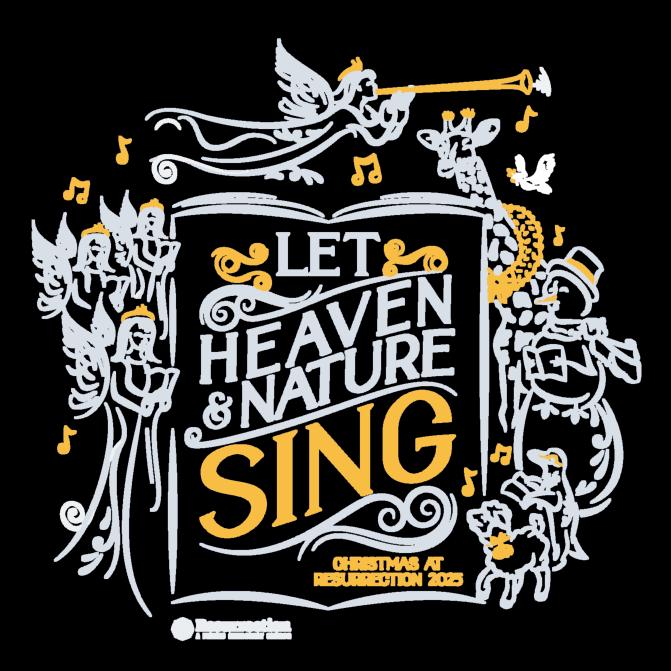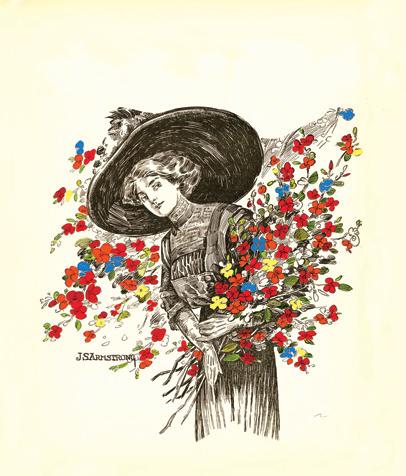

Park University International Center for Music Presents



Park University International Center for Music Presents

Friday, September 5, 2025 • 7:30 p.m.
1900 Building • Mission Woods, KS




At Park University’s International Center for Music, our purpose is simple yet profound: to shape the future of classical music by nurturing extraordinary talent and sharing it with the world. Each season, our students — rising artists from across the globe — come to Kansas City to learn, perform and inspire. Their artistry enriches our community, connecting hearts through music and leaving a lasting impact far beyond the stage.
This season, we invite you to witness their brilliance alongside renowned guest artists and faculty who join us in advancing our mission. Every performance you attend supports not only world-class music, but also the dreams of the next generation of great musicians.
Thank you for believing in the transformative power of music and for being part of this remarkable journey with us.
With gratitude,

Stanislav Ioudenitch Founder and Artistic Director International Center for Music at Park University
Florence Price (1887-1953)
ARR. FOR VIOLA AND PIANO ............................................................................
I. Andante molto
II. Allegretto
III. Leidenschaftlich schnell
Clara Schumann (1819 – 1896)
“PRAYER” (BASED ON MUSIC BY HILDEGARD VON BINGEN)
Vivian Fung (b. 1975)
ROMANCE FOR VIOLIN AND PIANO, OP. 23
ARR. FOR VIOLA
Amy Beach (1867-1944)
Beyoncé/Henrique Eisenmann (b.1986)
Andrea Casarrubios (b. 1986)
I. Impetuoso
II. Vivace
III. Adagio – Agitato
Rebecca Clarke (1886 – 1979)
*Commissioned by the Carr-Petrova Duo and based on music by the Palestinian Women Ensemble “Daughters of Jerusalem”
About this program: Comprised entirely of works by female composers, “HERS” vibrantly celebrates the vision, strength, resilience and vital contributions of females throughout history. Through music and storytelling, the Carr-Petrova Duo will lead the audience through the inspirations, battles and incredible accomplishments of eight fearless women — from the 12th century’s Hildegard Von Bingen (a German Benedictine abbess, visionary mystic and composer) to today’s Beyoncé — inviting attendees to share in the centuries of heartbreak, struggles and triumphs that comprise the female experience.

Described as “ravishing” (Strad), “enlightened” (BBC), “explosive” (Virginia Gazette), and “irresistibly elegant” (Diario de Leon), violist Molly Carr and pianist Anna Petrova are rapidly compiling a remarkable list of accolades in recognition of their fiery musical expression, refined artistry, and relentless entrepreneurial dedication to social initiatives. Both acclaimed international soloists, as individuals they have won top prizes in several international competitions, and have been featured in such world-renowned venues as Carnegie Hall, the Concertgebouw, and Lincoln Center. They have participated in festivals such as the Marlboro Music Festival, Ravinia, MozartFest, Music@Menlo, and the Perlman Music Program, and their performances have been broadcast on CNN, PBS, NPR’s “Performance Today,” WQXR, and ABC’s “Good Morning America.”
Carr and Petrova began playing together during their years at the Juilliard School and the Manhattan School of Music, and have since performed together across Europe, the Middle East and North America, in venues ranging from Lincoln Center to soup kitchens in New Orleans and schools in Gaza. Recent season highlights include a Carnegie Hall debut – praised by the Classical Post as “categorically astonishing in its beauty, ensemble, artistry, quality of sound, and almost uncanny ability to draw into the music” – as well as recitals at the Smithsonian Museum, Jerusalem Music Center, Malaga’s Sociedad Filarmonica Chamber Music Series, and Sala Clemente in Valencia. Their future engagements include a tour of China, performances and masterclasses in Spain, Israel, Italy and the U.S.
Their debut album “Novel Voices” was released on Melos Records in October 2019 to critical acclaim. Spain’s classical music magazine Ritmo immediately chose it as one of their “Top 10 CDs of the Month,” while Fanfare magazine reviewed the album as “magical” and a “recording to
have and hold dear, […] one of the most successful viola and piano recitals – technically perfect and musically involving.” Codalario magazine gave the album its seal of “Superior Quality,” listing the album as its top album of 2020 and stating, “It would be hard to debut better than this.”
In August 2018, the Duo launched an interdisciplinary project called the Novel Voices Refugee Aid Project (winner of Music Academy of the West’s Alumni Enterprise Award) – a venture designed to give voice and visibility to refugee communities while raising awareness and support for both local and international refugee-aid organizations. The project brought classical music performances and music workshops to refugee camps and aid-programs around the globe, commissioned a new work by composer Fernando Arroyo Lascurain, and will be the feature of an upcoming documentary by filmmakers Victoria Stevens and Skyler Knutzen. In support of this project, and in celebration of the 70th Anniversary of the Declaration of Human Rights, the Duo was honored at the United Nations and invited to perform and present the Novel Voices Refugee Aid Project in October of 2018.
The outgrowth of Novel Voices is now being developed under the non-profit Project: Music Heals Us (PMHU), for which the Duo serves as an Ambassador Ensemble. In this next phase, called the Novel Voices: Distance Learning program, the Duo will work with PMHU to return virtually to the places and people previously visited, to offer weekly digital music lessons, masterclasses, and teacher-training workshops to young refugee musicians as well as music organizations with limited access and resources around the globe.
The Duo’s connection with PMHU early in the pandemic was also instrumental in helping to launch a PMHU program of virtual bedside concerts that continues today, performing for hospitalized COVID patients across the US. Their concerts in Spring of 2020 were featured by news outlets around the world, including the New York Times, CNN, Forbes, and BBC World News.
Collectively, the Duo holds faculty positions at The Juilliard School, Manhattan School of Music, Bard College Conservatory of Music, and the University of Louisville, and is represented by Iberkonzert Artistic Management.

Univ of Arkansas Libraries Special Collections
There will always be a vast abundance of music that remains undiscovered, pushed aside by social, political, or gender prejudices — or simply by scholarly neglect. Not until we unearth these works and present them in exemplary performances, and on a regular basis, will the public come to appreciate their full value.
Florence Price’s music offers an example of riches that we have been missing for nearly a century. Although much of her output (some 300 works) was known during her lifetime, the struggle to get them performed was a central theme, then as now. “I have two handicaps: those of sex and race,” she wrote to conductor Serge Koussevitzky in 1943.
Renewed interest in Price’s music has resulted in a new appreciation of her remarkable symphonies, concertos, vocal works, and chamber music. In addition to frequent performances, an abundance of recordings has helped bolster this interest.
Photo: Damian Gonzalez
Born in Little Rock, Arkansas, Price grew up in a family of some means: Her father was evidently the only Black dentist in the city, and her mother taught music. Florence’s gifts at the keyboard and as composer won her a spot at the New England Conservatory, where she was a student of Boston composer George Chadwick.
Graduating at age 19, she taught music at Clark Atlanta University but eventually moved to Chicago, where she composed prolifically and made friends with Black artists such as Margaret Bonds, Langston Hughes, and Marian Anderson. In 1933, the Chicago Symphony and Frederick Stock presented the premiere of Price’s Symphony No. 1 — the first orchestrall work by a Black woman to be performed by a major American orchestra.
Price’s music often finds itself squarely in the late-19th-century tradition of Brahms and Dvořák, with hints of Impressionism, hymnody, folk music, and spirituals. Her Elfentanz is from a set of pieces originally for violin and piano; it captures the bright energy of elves.
Previous generations of music-lovers have viewed Clara Schumann primarily as the devoted wife of the “famous composer,” and as a brilliant pianist whose concert career not only furthered the cause of her husband’s music but also helped support the couple’s ever-growing family. Clara’s own compositions were brushed aside as insignificant. Today’s performers and audiences have begun to discover what delightful, unusual works they are.

1857 Autotype by Franz Hanfstaengl
Clara Wieck took to music from an early age. Not only was she a child prodigy on the piano, she began composing quite young — publishing a set of piano polonaises at the age of 12. The concert tours she made as a youth brought her to the attention of Mendelssohn, Chopin, and Paganini. But it was Robert Schumann she would marry — despite her father’s vehement disapproval. Though she continued to concertize, it was during her marriage to Robert that Clara was most productive as a composer. The Three Romances, Op. 22, originally for violin and piano, were composed in 1853 and published two years later. They were written for Joseph Joachim, one of the leading violinists of the era. The Andante molto is cast in an intensely Romantic vein. The Allegretto mines a darker mood, while the final Leidenschaftlich schnell (Passionately fast) shows the composer in total command of structure, harmony, and melodic design.

Born in Edmonton, Alberta, Vivian Fung first studied in Canada (with Violet Archer) and in Paris before enrolling at the Juilliard School, where she earned bachelor’s, master’s, and doctoral degrees. Among her mentors were David Diamond and Robert Beaser. The Philadelphia Inquirer has noted her “stunningly original compositional voice.” Fung has composed extensively for orchestral, choral, and chamber ensembles. Her current opera, My Family/Cambodia, 1975 explores the saga of her own family’s escape from the Khmer Rouge and their journey to France and Canada. Her Dreamscapes, recorded on NAXOS Canadian Classics, won the 2013 JUNO Award for Classical Composition of the Year, and her String Quartet
No. 4 (“Insects and Machines”) was a nominee in 2025. Fung’s works have been performed by major orchestras and ensembles in collaboration with artists such as Yannick Nézet-Séguin, Peter Oundjian, Cristian Măcelaru, Gemma New, and Bramwell Tovey.
Prayer was inspired by music of one of the earliest known female musicians of the Western tradition, Hildegard von Bingen (1098-1179), a Benedictine abbess also known as a poet, prophet, visionary author, and composer. Fung’s piece is an adaptation of melodic material from Hildegard’s antiphon chant O Pastor animarum, here given a lush treatment of expansive vision. Fung has written the following: “Prayer is, in essence, an aberration, for under no other circumstance in the past (or probably in the future) have I worn my heart on my sleeve as transparently as I have with this piece. In times of crisis and peril, we have but the reliance on faith — from the profound faith in humanity, faith in love, and faith that we will persevere and get through this with dignity … to the mundane faith that I would complete the piece within the extraordinary conditions that faced me, with a young child at home 24/7, a bronchial infection, and a very tight timeline (ultimately, a matter of days) to complete the piece.” Commissioned by CBC Music in collaboration with the Toronto Symphony Orchestra, Prayer was first performed in June 2020, with Nézet-Séguin leading an ensemble of 35 musicians from across Canada. It is presented here in a skillful adaptation for viola and piano.
Born in New Hampshire of a prominent New England family, Amy Beach stands as one of the most significant musicians of her time. She was also the first woman to gain a foothold in the male-dominated compositional culture of the United States.


Her musical outlook — at first, strongly recognizant of Brahms and Dvorák, and later of Debussy — is striking for its command and individuality. Beach is spoken of by some as a member of the Second New England School, a group of composers that also included John Knowles Paine, Arthur Foote, and George W. Chadwick.
When Amy was eight her family moved to Boston, where she had access to the best of European-influenced culture. She learned a great deal on her own: she copied out whole Bach fugues from memory (in order to master voice-leading) and she studied Berlioz’ Treatise on Orchestration. A precocious pianist, as a teenager she performed Chopin’s F-minor Concerto with the Boston Symphony.
In 1885 she married a widower, Henry Harris Aubrey Beach, and during the 25 years of their marriage she steadily performed less, while composing more prolifically. This was the period in which she developed her craft, composing choral, orchestral, and chamber music, as well as songs and piano works. Her Piano Quintet is one of the finest in the repertoire. The orchestral works were among the first by a woman to be performed by major orchestras: In 1915, for instance, Leopold Stokowski and the Philadelphia Orchestra performed her “Gaelic” Symphony. After Henry’s death she resumed her career as pianist, touring Europe and spending summers at New Hampshire’s MacDowell Colony. The Romance was composed in 1893 for the Women’s Musical Congress, a sort of celebration of American women by the Chicago World’s Fair. It received its premiere with Maud Powell on violin and the composer at the keyboard.
The C-minor Sonata is at turns darkly dramatic and tranquil. The opening movement (Allegro molto ed appassionato) is one of bold theatrics, while the Allegretto espressivo (“alla Romanza”) juxtaposes a lyrical theme with a spirited dance section. The final Allegro animato places a rustic romp against a sweetly lyrical central section.

Beyoncé Knowles-Carter has certainly earned a place on this panoply of music by indefatigable women. Born and raised in Houston, she took dance classes at her Montessori school and later sang with school choirs. As a teenager she joined r&b girl groups — one of which, Girl’s Tyme, was renamed Destiny’s Child and during the late 1990s became an international sensation.
By 2001 the members of Destiny’s Child began to seek solo careers. Beyoncé’s first solo album, Dangerously in Love, was released in 2003. In April 2008, she and music superstar Jay-Z were married, and in September of that year she released her third studio album, I Am … Sasha Fierce.
The double album, which won six Grammy Awards in 2020, contained singles that would become anthemic songs of the era, including “Single Ladies (Put a Ring on It)” and “Halo.” The latter was written by Ryan Tedder and Evan Bogart, with Tedder producing it alongside Beyoncé. The lyrics suggest an angelic figure with a bright halo coming into the singer’s life:
Everywhere I’m lookin’ now I’m surrounded by your embrace Baby, I can see your halo
You know you’re my savin’ grace You’re everything I need and more It’s written all over your face Baby, I can feel your halo Pray it won’t fade away.
The arrangement for viola and piano is by Henrique Eisenmann, a New Yorkbased Brazilian concert pianist and composer whose own works fuse classical styles with jazz and world folk music. He has made “Halo” into an instrumental fantasy, with the original melodies straying into new regions — inspiring fresh harmonies, motivic patterns, and unexpected sound effects.
Commissioned by the Carr-Petrova Duo; based on music by the Palestinian Women Ensemble “Daughters of Jerusalem”
The Spanish-born cellist and composer Andrea Casarrubios studied at the Peabody Conservatory and earned a doctorate at the Graduate Center of the City University of New York. Among her cello teachers were Maria de Macedo, Lluís Claret, Amit Peled, Marcy Rosen, and Ralph Kirshbaum. She was also involved, as part of her doctoral degree, with Ensemble Connect in New York, and she studied composition with John Corigliano.

Casarrubios has performed widely as soloist and chamber musician — in Carnegie Hall, Lincoln Center, Disney Concert Hall, and at the Piatigorsky, Ravinia, and Verbier festivals. Her works have been programmed by the Philadelphia Orchestra, the Chicago Symphony, the Indianapolis Symphony, Sphinx Organization, and many others. Her piece SEVEN, which had its premiere in Carnegie Hall in 2020, has been performed around the globe.
The Carr-Petrova Duo commissioned Magnitude after observing a performance by “Daughters of Jerusalem,” an ensemble of Palestinian women at Edward Said
National Conservatory. Casarrubios’ piece is an homage to this group of women who strive to make new music against all odds.
Magnitude strikes a melancholic, even pleading tone; the tranquil mood of the opening, given growing intensity by insistent eighth-note repetitions, is followed by a ferocious outburst and a return to the pleading opening strains. “I couldn’t help but consider the magnitude — the tremendous impact they will continue to make,” the composer has written, “and how their courage in music can have such important repercussions in generations to come.”

Born in the London suburbs of an American father and a German-born mother, Rebecca Clarke learned violin and viola as a child. Later, at the Royal College of Music, she studied composition with Charles Villiers Stanford, viola with Lionel Tertis. In 1912 she joined the Queen’s Hall Orchestra, becoming one of the first women to play in a professional London orchestra.
Much of Clarke’s fame today rests on three works composed early in life: the Sonata for Viola and Piano (1919), the Piano Trio (1921), and the Rhapsody for Cello and Piano (1923). She was in New York visiting her brothers when World War II broke out, and she decided to stay. In 1944 she married Scottish-born pianist James Friskin, who taught at the Juilliard School for 52 years; she remained in the United States for the rest of her life. Clarke entered the Viola Sonata in Elizabeth Sprague Coolidge’s 1919 Berkshire Festival competition, which that year had chosen to focus on works for viola and piano. Clarke narrowly lost to Ernst Bloch’s Suite for Viola and Piano, but her sonata was warmly received at its Berkshire Festival in September 1919. Today it is recognized as a central 20th-century chamber work, and violists welcome it as a beloved member of their repertoire. Clarke cites the French poet Alfred de Musset at the front of the published score: “Poet, take up your lute; the wine of youth ferments this night in the veins of God.” The sonata opens with a passionate Impetuoso that underscores both the lyrical and the dramatic qualities of the viola: The movement manifests influence of the Impressionists and of the “modal Brits” of the early 20th century. The buoyant Vivace sets the violist charging toward a virtuosic adventure, and the ponderous, provocative Adagio shows the full breadth of Clarke’s tender, skillful melodic gifts. This gives way to a driving Agitato section of rhythmic dynamism and tonal color. A surprise coda (spoiler alert!) marks a nostalgic return to the opening material.
-Notes by Paul Horsley






The Park University International Center for Music Foundation exists to secure philanthropic resources that will provide direct and substantial support to the educational and promotional initiatives of the International Center for Music at Park University. With unwavering commitment, the Foundation endeavors to enhance awareness and broaden audiences across local, national, and international spheres.
Vince Clark Chair
Steve Karbank Secretary
Marilyn Brewster
Lisa Browar
Stan Fisher
Brad Freilich
Holly Nielsen
Benny Lee Treasurer
Ron Nolan
John Starr
Steve Swartzman
Angela V. Walker
Karen Yungmeyer


Stanislav Ioudenitch Founder & Artistic Director Piano Studio
Behzod Abduraimov
Artist-in-Residence
Gustavo Fernandez Agreda
ICM Coordinator
Peter Chun, Viola Studio
Lolita Lisovskaya-Sayevich Director of Collaborative Piano
Steven McDonald Director of Orchestra
Ben Sayevich
Violin Studio
Daniel Veis
Cello Studio
The Park University International Center for Music’s Patrons Society was founded to help students achieve their dreams of having distinguished professional careers on the concert stage.
Just as our faculty’s coaching is so fundamental to our students’ success, our Patrons’ backing provides direct support for our exceptionally talented students, concert season, outreach programs and our ability to impact the communities we serve through extraordinary musical performances.
We are continually grateful for each and every one of our Patrons Society members. For additional information, please visit ICM.PARK.EDU under “Support Us.”
SUPERLATIVE
Ronald and Phyllis Nolan *
Jerry M. White and Cyprienne Simchowitz
EXCEPTIONAL
Brad and Marilyn Brewster *
SUPREME
Brad and Theresa Freilich
Barnett and Shirley Helzberg
Benny and Edith Lee *
John and Debra Starr *
EXTRAORDINAIRE
Joe and Jeanne Brandmeyer *
Thomas and Mary Bet Brown *
Vincent and Julie Clark *
Stanley Fisher and Rita Zhorov
Stephen L. Melton *
Susan Morgenthaler
Rob and Joelle Smith
Nicole and Myron Wang *
Lisa Browar *
Paul S. Fingersh and Brenda Althouse *
Patty Garney *
Ihab and Colleen Hassan
Lisa Merrill Hickok
Robert E. Hoskins, ‘74
John and Jacqueline Middelkamp
Patrick and Teresa Morrison *
James and Laurie Rote
John and Angela Walker *
Barbara and Phil Wassmer *
John and Karen Yungmeyer *
* 2025-26 Member
We gratefully acknowledge these donors as of August 5, 2025.
Park University International Center for Music

October 3, 2025 • 7:30 p.m. Graham Tyler Memorial Chapel
Tim Hankewich, music director of Orchestra Iowa, is popular with audiences and critics alike, earning an outstanding reputation as a maestro whose classical artistry is as inspiring as his personality is engaging. Hankewich is familiar to local audiences, having served for seven years as resident conductor of the Kansas City Symphony.
Reserve your seats today.
Tickets are FREE with reservation. SCAN HERE!






Thursday, October 23, 2025 • 7:30 p.m.
1900 Building • Mission Woods, Kan.
Join us to experience the artistry of Shmuel Ashkenasi!
As first violin of the famed Vermeer Quartet, Ashkenasi has gained a reputation as one of the world’s outstanding chamber musicians. He has toured the world performing in the former Soviet Union, Europe, Israel, the Far East and the U.S. Don’t miss this opportunity to enjoy his performance in person!

icm.park.edu




Imagine hearing — and seeing — every keystroke of a world-class piano performance in your own home. With spirio , you can enjoy music captured by renowned pianists, played with such nuance, power, and passion that it is utterly indistinguishable from a live performance.
Thousands of recordings by steinway artists are available at the touch of a button on the included iPad.
The library of music, videos, and playlists expands monthly and spans all genres. In addition to today’s greatest musicians, spirio delivers historic performances by steinway immortals , including Duke Ellington, Glenn Gould, Art Tatum, and many more.





